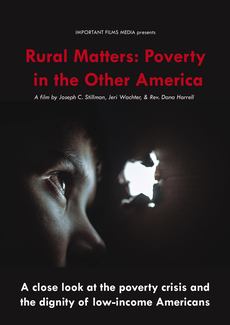 Try these videos to get started. Must be on campus or login with your COM account for off campus access.
Try these videos to get started. Must be on campus or login with your COM account for off campus access.
Want more on finding media? Try Articles & Media.
-
Canners (01:17:00)
Manfred Kirchheimer’s deeply humane Canners takes to the streets in an ode to the men and women who earn their daily bread by diligently collecting New York City’s bottles and cans. He talks to them about their struggles, their families, and their dreams, never straying too far from his work’s abiding subject, survival in the city. This lyrical documentary, along with his award-winning previous films (Stations of the Elevated (1981), We Were So Beloved (1985), Tall: The American Skyscraper and Louis Sullivan (2004), among many others) makes a superb addition to a body of work fifty years in the making, defined by Whitmanesque generosity and grandeur.
-
Industrial New York: Filthy Cities (48:40)
Fleeing persecution, poverty, and famine, millions of 19th-century Europeans arrived in a place that seemed worse than what they’d escaped—a seething Manhattan in the throes of the Industrial Revolution. This program uses eye-opening computer reconstructions to envision what waves of immigrants had to accept. It was a city consumed by filth and corruption, with a massive populace crammed into the slums of Lower Manhattan. The film looks at some of the disease-carrying parasites that thrived in overcrowded tenement buildings and shows what it was like to cook with improvised 19th-century ingredients—clothes dye and floor cleaner—to disguise the taste of fetid meat. But viewers will also marvel at feats of engineering that transformed the sullied New York landscape into a metropolis worthy of the world’s esteem. A BBC/Discovery Coproduction. A part of the series Filthy Cities: A History of Public Sanitation (or Lack Thereof).
-
Rural Matters: Poverty in the Other America (36:00)
A documentary film examining poverty, the dignity of low-income Americans, and its impact on working people living on the edge of economic insecurity in rural America. This documentary speaks to people with lived experience, academics, policymakers, and leaders in antipoverty organizations in three counties in Up-state New York.
-
The Women of Hull House: Harnessing Statistics for Progressive Reform (17:45)
Horrified by the living conditions in Chicago’s tenements, Jane Addams opened Hull House in 1889, a place where she, Julia Lathrop, and other fellow activists could provide outreach services to the poor and uneducated people of the neighborhood—and by applying statistical analysis to real-world problems, pave the way for far-reaching social reform. Filled with archival photos and footage, this powerful program brings together Daphne Spain, author of How Women Saved the City, and Robyn Muncy, author of Creating a Female Dominion in American Reform, to discuss topics including infant and maternal mortality, the landmark Hull House Maps and Papers, and women’s progressive reform movements.
![]() Try these videos to get started. Must be on campus or login with your COM account for off campus access.
Try these videos to get started. Must be on campus or login with your COM account for off campus access.
